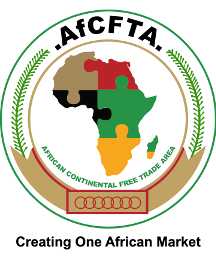Women entrepreneurs in Zimbabwe and Southern Africa have been urged to utilise the African Continental Free Trade Area (AfCFTA) to expand their business opportunities.
The AfCFTA — which was initially set to commence on July 1, 2020, but delayed due to the coronavirus — seeks to boost intra-Africa trade.
If implemented fully, the trade pact could boost regional income by 7 percent or US$450 billion, speed up wage growth for women, and lift 30 million people out of extreme poverty by 2035, according to the World Bank.
Speaking during the international trade conference on unpacking AfCFTA, in Harare Tuesday, International Trade Centre (ITC) deputy executive director, Dorothy Tembo, highlighted the rise of existing gender inequalities, affecting women’s access to resources and equitable economic opportunities as a result of Covid-19 situation.
“It is a well-known fact that women’s empowerment creates ripple effects that boost growth and make countries more competitive internationally and also improve other complementary factors, such as health and education,” said Tembo.
“Despite these evident gains, women entrepreneurs and women-led business face greater challenges, such as limited financial literacy, access to finance and business networks, and even constraints due to social norms.”
Foreign Affairs and International Trade Deputy Minister, David Musabayana, underscored the government’s recognition to prioritise women’s economic empowerment in achieving the country’s economic growth.
“For women traders and entrepreneurs, including micro-entrepreneurs to benefit from expanded trade under the AfCFTA, government will scale up existing trade-related technical assistance for women and youth-owned SMEs to help them improve their capacity to trade”, said Musabayana
ZimTrade chief executive, Allan Majuru, said he believed the agreement opened tremendous possibilities for the whole continent.
“There are vast opportunities in African markets,” said Majuru.
“We have no doubt that with the right support Zimbabwean companies will perform well across all markets in the continent. Our engagement with ITC and other stakeholders will discuss intra-Africa trade opportunities as well as find solutions to challenges faced by Zimbabwean companies.”
Private-sector representatives called on policymakers in the region to accelerate digital transformation programmes, such as e-commerce, as they seek to align both national and regional trade strategies.
The Forum also included mini-workshops on key trade topics such as exporting within the AfCFTA and increasing intra-Africa transactions through e-commerce. Southern Africa and Zimbabwean exporters, especially women and young small businesses owners, were encouraged to tap into the opportunities available in other African markets as well as improve their competitive edge.

